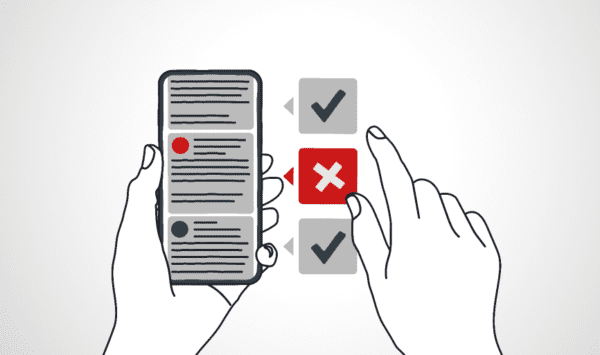
The spread of misinformation (unintentionally shared false content) and disinformation (intentionally shared false content) has attracted immense, and deserved, national attention. Misperceptions developed through consumption of mis- and disinformation can lead people to act on them. Bad actors intent on sowing discord and misleading the American public are able to enact their plans.
Local communities are uniquely vulnerable to misinformation due to a variety of factors:
- Many local news outlets have fallen on difficult times
- Current strategies for surfacing locally circulating misinformation, such as reporters relying on their own social media feeds, are insufficient
- Social media platforms are less likely to detect locally circulating misinformation as their techniques are more focused on national misinformation
- Scholars have been more focused on national, as opposed to local, misinformation
Given these vulnerabilities, it is no wonder we see increasing reports of locally circulating misinformation. For those with the intent to misinform, targeting local communities becomes all the more enticing given that even national elections are won and lost in particular states and counties and that local events (e.g., the killings of George Floyd and Breonna Taylor, the mass shooting in Uvalde, Texas) become the spark that ignites national attention.
As we look to the 2022 and 2024 elections, as we live through the unpredictability of COVID, and as the country undergoes a racial reckoning, the stakes are high for addressing misinformation.
In this effort, there are factors working in our favor. Exposure to corrective information can help to reduce misperceptions. Local news fact-checking efforts can help their local communities address misinformation. Other organizations, like social media companies, could use local fact-checks to address misinformation circulating at the local level.
What is missing is that local news organizations and platforms must know that local misinformation exists in order to counter it through efforts like fact-checking. In interviews with staff from news organizations across the country and social media platforms, we repeatedly heard that a major challenge is surfacing locally circulating misinformation.
The Center for Media Engagement is working to build a local system for surfacing misinformation that can be adapted for different communities. Our ground-breaking team includes newsroom collaborators (Univision, City Bureau, The Des Moines Register, and Detroit Free Press) and researchers and programmers from The University of Texas at Austin and the University of Michigan working together to build a community-facing interface and a journalist-facing dashboard for reporting and collecting suspected misinformation. We have been interviewing journalists and local news users to develop a tool informed by their experiences.
A few insights from these interviews are proving particularly influential. The journalists we spoke with:
- Feel that their newsrooms are ill-equipped to detect misinformation circulating locally
- Want to prioritize potential misinformation that would have the greatest social impact
- Are interested in seeing trends in reported cases of possible misinformation so they can address those that are increasing most rapidly.
Frequent consumers of local news who we spoke with:
- Think that they would use a tool to report possible cases of misinformation
- Would like to have the option to do so either from a website or an app
- Appreciate their local newsroom taking on this issue
We will be sharing more about this work in the coming months and look forward to testing whether this system can help local newsrooms deal with misinformation in their local communities.
Summer 2023 Update
Univision, the Center for Media Engagement, and researchers at the University of Michigan have been collaborating to build a community-facing interface and a journalist-facing dashboard for reporting and collecting suspected misinformation. A network of newsrooms have also been providing critical feedback on the project.
To-date, the team has developed an alpha version of an app and dashboard and are preparing for beta testing. The tool allows community members to report suspected misinformation about local topics to a newsroom. A dashboard then allows newsrooms to prioritize and investigate possible misinformation circulating in the communities that they serve. The team has also been working to identify signals of possible misinformation that occur on social media. For example, when a local candidate is mentioned by users as known for sharing untrustworthy information, this is likely a good signal of possible misinformation. We are working to populate the journalist dashboard with these signals as well. If you are interested in learning more, or being part of this project, please feel welcome to reach out.



